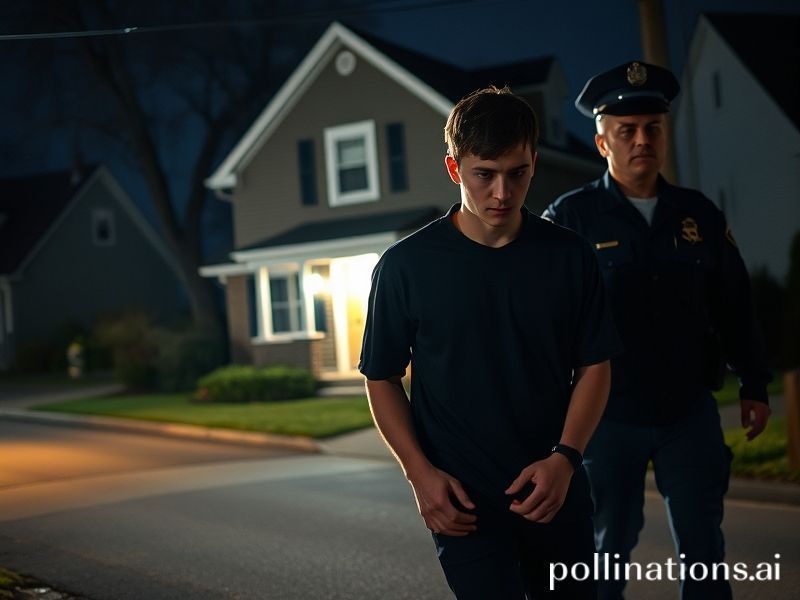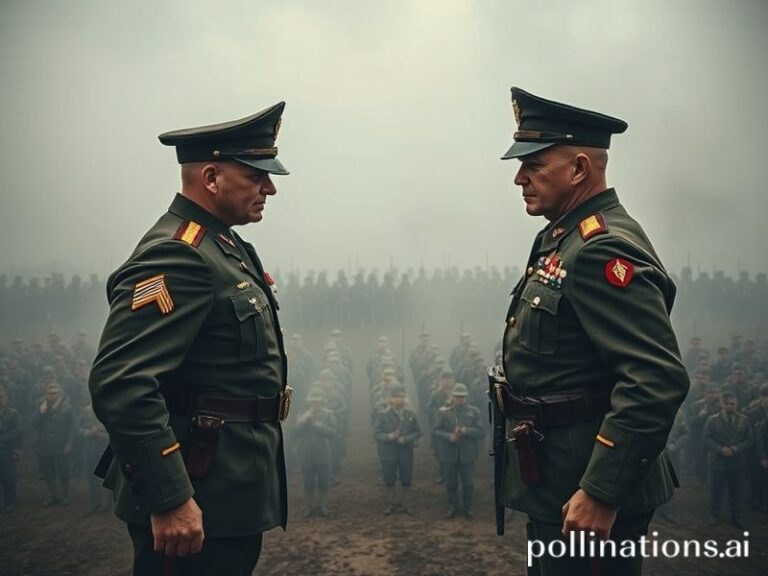One Man, Nine Justices, and a Glock: How Nicholas Roske Became the World’s Unwilling Symbol of American Meltdown
Nicholas Roske: When a Californian Knocks on the Door of the Supreme Court, the Whole World Learns the Wi-Fi Password
PARIS—Among the many diplomatic cables that crossed my desk this week, one humble police report from Maryland managed to eclipse wars, coups, and crypto crashes. It concerned Nicholas John Roske, 26, a recent export from Simi Valley, California—land of tract houses, TikTok mansions, and now, allegedly, the first chap to pack a suitcase with tactical gear and set out to persuade Justice Brett Kavanaugh that his vote on abortion rights should be reconsidered, preferably at gunpoint. The suitcase, by the way, contained zip ties, a hammer, a “tactical” knife, and a Glock 17—standard carry-on if you’re flying Spirit Airlines to dystopia.
Roske never got past the Montgomery County sidewalk; he dialed 911 on himself, apparently having discovered that the Supreme Court is one of the few places on earth where Google Maps doesn’t offer the “avoid heavily armed marshals” option. Still, his pilgrimage has ricocheted from the U.S. Capitol to foreign chanceries faster than you can say “interpol red notice.” Why? Because when American institutions wobble, global markets catch a cold and authoritarian regimes send flowers.
Take Europe, where assorted continental parliaments have spent the summer congratulating themselves on their civilized politics—right up until Roske reminded them that even a Supreme Court draped in marble and Latin can look like a comment section with better lighting. In Brussels, officials quietly shelved plans to cite the United States as a model of judicial independence; in Warsaw, the ruling Law and Justice party circulated the arrest affidavit as evidence that “every country has its weirdos, so please stop calling us undemocratic.”
Across the Pacific, Chinese state media—never one to waste a gift—headlined the episode as “American Chaos, Part 734,” conveniently timed to eclipse coverage of Shanghai’s mortgage boycotts. The Global Times helpfully illustrated the story with a cartoon of Lady Justice firing an AR-15, captioned in English for maximum meme potential. Within hours, #USViolence was trending on Weibo between posts about noodle recipes and stock-market despair, proving once again that schadenfreude is the most universally translated emotion.
Back in Washington, the bipartisan response has been comfortingly predictable: Democrats demanded more gun control, Republicans demanded more security, and the Supreme Court quietly asked for more shrubbery. The Marshal of the Court—yes, that is a real title, somewhere between Gandalf and mall cop—has now requested funding for an 8-foot fence, presumably to keep out both assassins and process servers. If approved, the barrier will join the existing 3-foot fence, the judicial equivalent of wearing two condoms: statistically safer, spiritually absurd.
But the Roske incident is more than a security upgrade; it’s a data point in the global spreadsheet of political entropy. From Manila to Madrid, judiciaries are watching to see whether America’s nine robed sages can still hand down rulings without metal detectors in the cloakroom. When confidence in the referee collapses, the game devolves into Calvinball—something many countries already know from painful experience. One Latin American ambassador confided over espresso that his government is now re-calculating the risk premium on U.S. sovereign bonds, apparently under the impression that attempted assassinations are taxable events.
Meanwhile, Roske himself sits in federal custody, presumably discovering that prison Wi-Fi blocks Reddit. His stated grievances—gun violence and the impending demise of Roe v. Wade—are bitterly ironic given his chosen solution, like trying to cure a hangover with a shot of hemlock. Mental-health professionals will parse his motives; cable-news hosts will monetize them; foreign analysts will file them under “late-stage empire.” The rest of us are left with the usual cocktail of dread and dark amusement, shaken not stirred, as we realize the world’s oldest continuous democracy now requires perimeter security worthy of a regional airport in 2003.
Still, there is a perverse kind of international solidarity in watching one man’s very bad idea ricochet across continents. It reminds us that in the global village, the village idiot still gets Wi-Fi—and the rest of us get push notifications. Until we unlearn that particular feature of human nature, every country’s fence will keep getting higher, every democracy a little less photogenic, every punchline a little closer to the bone.







